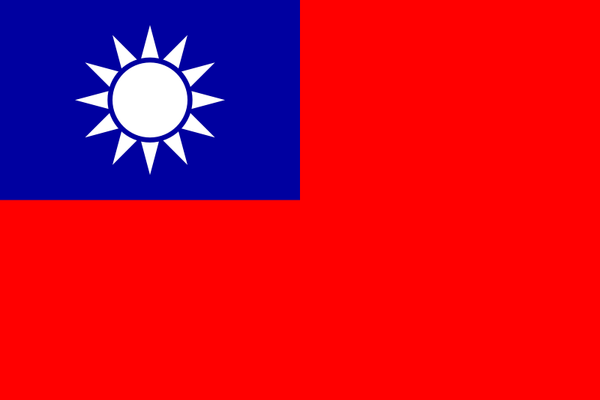(中央社)

(中央社記者姜遠珍首爾6日專電)韓國(Korea, 韓國語「대한민국」Daehan-minguk或「한국」Hanguk)《韓國日報》(The Korea Times, 韓國語「한국일보」Hankook Ilbo)英語版今天刊載了著名專欄作家金興淑的一篇專文,對中華民國台灣主辦2009年第二十一屆臺北夏季聽障奧運會(21st Summer Deaflympics Taipei 2009, 簡稱「2009年臺北聽奧」)稱譽有加,並呼籲韓國政府向台灣看齊,爭取主辦2017年聽障奧運會。
金興淑在《韓國日報》(The Korea Times)以「給臺北聽障奧運最誠摯的祝福」(Best Wishes for Deaflympics)發表她的感想。
文中,金興淑指出,中華民國與中華人民共和國之間的交流持續擴大,海峽兩岸間的政治緊張和軍事對立關係也逐漸緩和,而且台灣最近幾個月的外匯存底屢創新高,5月的增加率更創下歷史新高,台灣發生的這些的事情,在韓國卻都是完全相反,令她感到嫉妒。
她說,但是這些政治和經濟的發展形並不是嫉妒的理由,而是台灣將於9月5日至15日主辦第21屆夏季聽障奧運。這項首度在亞洲舉行的運動會將會吸引全球1萬名的選手和訪賓。
專文指出,台北透過這項聽障奧運可以向全世界證明有充分能力舉辦國際運動比賽。
到目前為止,已經有81個國家的5,500名選手報名參加,這是有史以來的最大規模聽障奧運,韓國將派遣103人的代表團。
金興淑指出,韓國曾經主辦夏季奧運會、世界杯足球賽等多項國際運動比賽,但是為何不爭取主辦聽障奧運會?
她認為,韓國已經不須要舉辦其他大型運動來證明自己的能力,但是絕對有須要舉辦聽障奧運會來教育她的人民,如果韓國能繼2013年雅典之後,在2017年舉辦聽障奧運會,也許可以提醒讓韓國人不需要用擴音器來讓別人聽到聲音,也讓大家數十年來首度有幾天可以體會沉默的重要。980706
-----------------------------------------------------------------------------------------------------------------------------------------------------------------------------------------------
07-03-2009 18:12
Best Wishes for Deaflympics

By Kim Heung-sook
I feel envious of Taiwan of the Republic of China these days. Contacts between Taiwan of the ROC and the People's Republic of China are ever expanding and the cross-strait tensions on political and military fronts are subsequently lessening. Taiwan's foreign exchange reserves hit a record high in recent months, showing the biggest increase in history in May. What is happening on the island is just the opposite of the way things are going in my own country.
However, the paramount reason of my envy is neither political nor economic. It is Taipei's hosting of the 21st Summer Deaflympics from Sept. 5 to Sept. 15. The event, to be held for the first time in Asia, is expected to draw some 10,000 athletes and visitors to the island, the Central News Agency of Taiwan reported last weekend. Quoting Organizing Committee CEO Emile C.J. Sheng, CNA of Taiwan said that venues were already "fully functional" and the main task now was to train 8,600 volunteers for the games.
The Taiwanese must excel more than other people when it comes to hosting events for the deaf. In 2000, Taiwan hosted the 6th Asia Pacific Games for the Deaf and its success contributed largely to Taipei's winning the bid to host the Summer Deaflympics. I am not sure what motivated Taiwan to pay such keen interest in events for the deaf, but Taipei's efforts to make the upcoming games as "the most thoughtful Deaflympics ever" are impressive. I particularly admire the volunteers who are busy learning internationally communicative sign language from instructors from home and abroad.
Through the Deaflympics, Taiwan may want to prove to the world that it is perfectly capable of hosting international sports extravaganzas. At the same time, the country seems eager to make use of the event in uniting and upgrading services for its own deaf community. Taipei Police and Fire Departments have set up emergency text message/fax hotlines, which are easy to use for the deaf and hard of hearing. Such services won't end even after the Games come to a close but will be continued, according to the organizing committee.
So far, over 5,500 athletes and staff from 81 countries have registered for their participation in the event, the largest in the history of the Deaflympics. Seoul will send a 103-member delegation including 65 athletes in nine sports. In the previous games in Melbourne in 2005, Korea was ranked seventh just after Taiwan. The Deaflympics has been held once every four years since it was launched in 1924 in Paris, except during 1939 and 1945 due to World War II.
Korea has held the Summer Olympics, World Cup soccer finals and many other international sports competitions, then why doesn't it try to host the Deaflympics? Is it because Korea does not have many deaf people? Is it because our deaf compatriots already enjoy lives without much difficulty and don't see the need to educate the public on their plight?
No, I guess not. There are around 230,000 people in Korea who are deaf or suffering from hearing problems, compared to some 50,000 in Taiwan. I don't think that the lives of Koreans with hearing handicaps have improved much over the past 40 years when I lived in the vicinity of a school for the deaf and observed how my neighbors acted towards students. My neighbors were not bad people but they seemed to think that deaf meant dumb somehow.
Nowadays, hearing aids are easier to get, more television programs are shown with subtitles, and the number of people who can tell deaf from dumb has increased, but there still are many men, women and children who need to be educated about how to live with people with special challenges. If you have ever been on a bus where deaf persons speak via sign language and have seen the passengers watching them with curious eyes, you will understand what I am saying.
With the ever-increasing use of earphones and the ear-splitting noise everywhere, I presume we will have more people suffering from deafness or hearing problems in the days ahead. Korea may not need to host another international sports event to prove its capability, but it definitely needs to bring in the Deaflympics to educate its people. If a Korean city hosts the games in 2017 following Athens in 2013, we Koreans may be reminded of the fact that we don't need loud speakers to be heard. We may even be able to think about the importance of silence for a few days for the first time in decades.
kimsook@hotmail.com






 中華民國台灣隊擊敗關島取得亞太地區代表權,球員高興拋帽搖旗慶祝。游智勝攝
中華民國台灣隊擊敗關島取得亞太地區代表權,球員高興拋帽搖旗慶祝。游智勝攝












 (中央社記者焦興華台北6日電)新疆烏魯木齊昨晚發生流血衝突事件,造成一百餘人死亡,目前定居台灣的維吾爾族「六四」民主運動人士吾爾開希今天強烈譴責中國殘暴鎮壓維吾爾人。
(中央社記者焦興華台北6日電)新疆烏魯木齊昨晚發生流血衝突事件,造成一百餘人死亡,目前定居台灣的維吾爾族「六四」民主運動人士吾爾開希今天強烈譴責中國殘暴鎮壓維吾爾人。



 (法新社華盛頓5日電) 中國大陸少數民族維吾爾族的一名流亡領袖說,中國警方今天曾不分青紅皂白地向示威群眾開槍,他擔心死亡人數可能較北京當局所宣稱的3人多。
(法新社華盛頓5日電) 中國大陸少數民族維吾爾族的一名流亡領袖說,中國警方今天曾不分青紅皂白地向示威群眾開槍,他擔心死亡人數可能較北京當局所宣稱的3人多。

 決賽現場眾星雲集。7屆
決賽現場眾星雲集。7屆
 .27歲/瑞士人
.27歲/瑞士人


